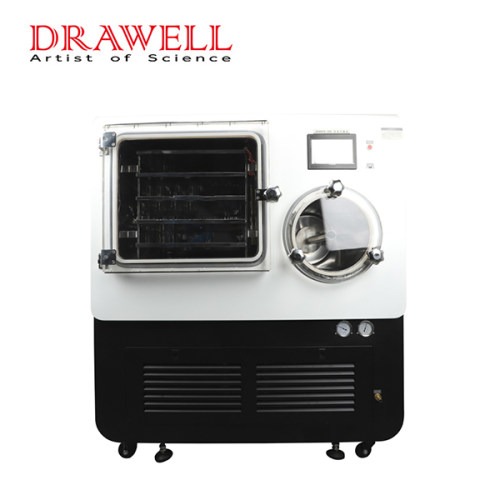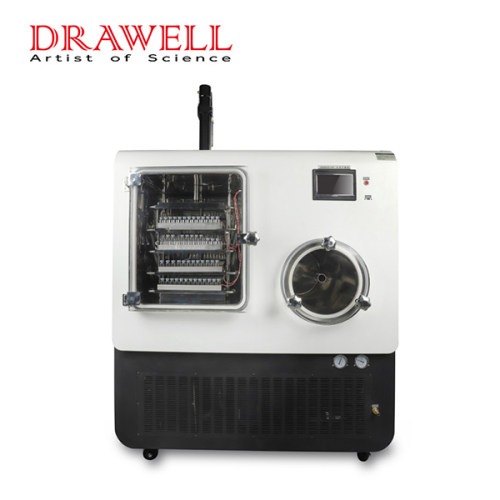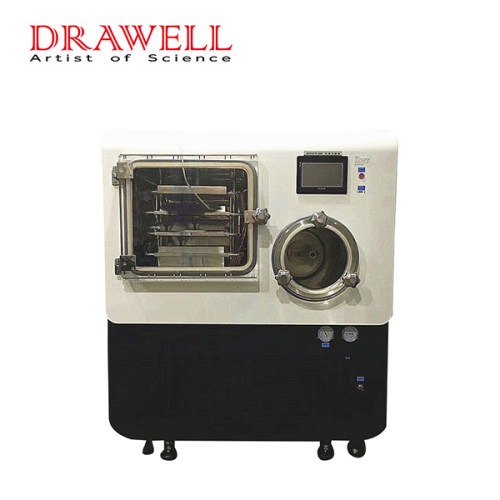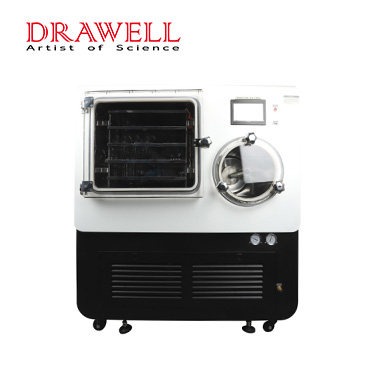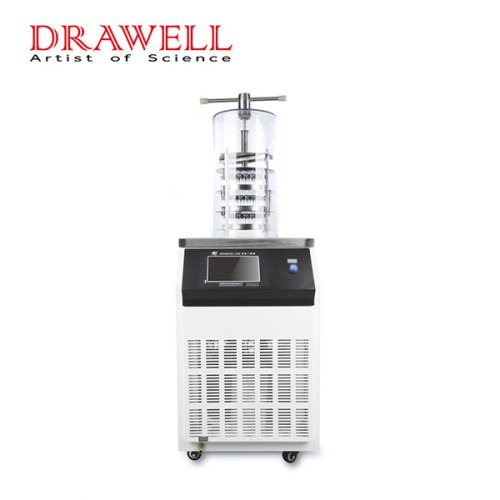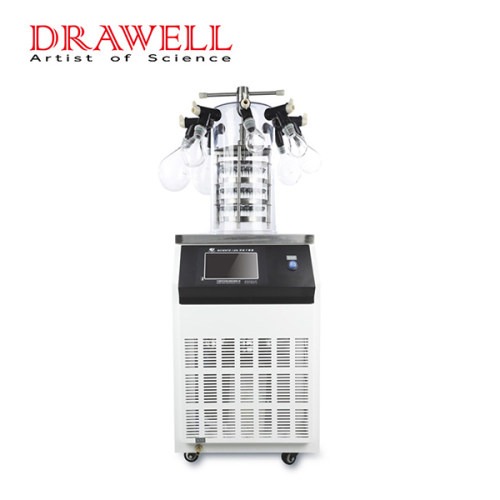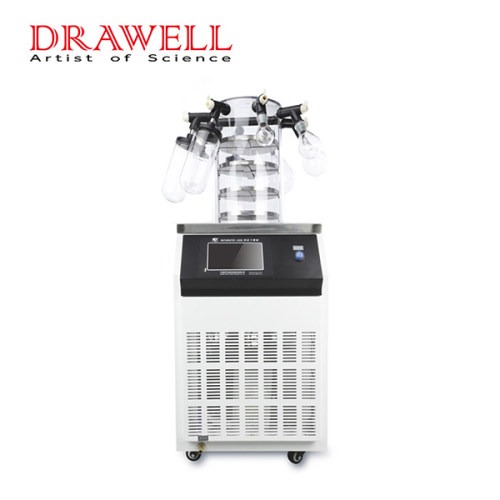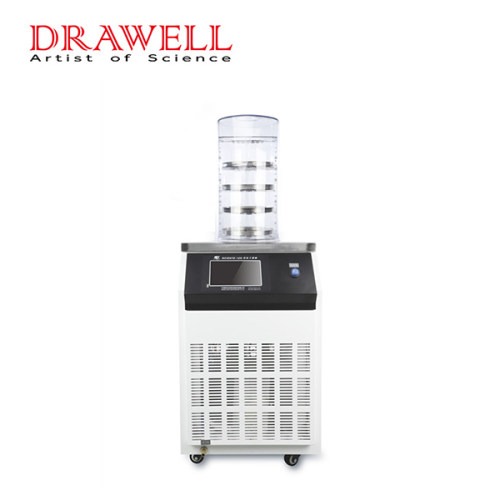In the dynamic landscape of pharmaceutical manufacturing, innovation is not merely a buzzword; it’s a lifeline. As the industry strives to meet the increasing demands for stability, efficiency, and quality in drug production, one technology has emerged as a game-changer: lyophilizers. These sophisticated freeze-drying machines are revolutionizing the way pharmaceuticals are manufactured, offering a unique blend of precision, speed, and efficacy.
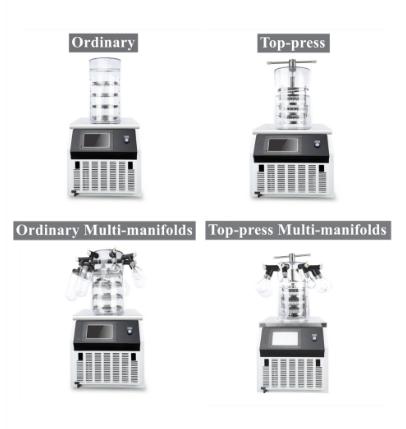
What is Lyophilization?
Lyophilization, also known as freeze-drying, is a process of removing water from a material by freezing it and then lowering the pressure so that the ice sublimates directly into vapor. This process is widely used in the pharmaceutical industry to preserve the stability and activity of drugs and other sensitive materials.
The lyophilization process typically involves the following steps:
- Freezing: The material to be lyophilized is first frozen to a temperature below its eutectic point. This is the temperature at which the material is a mixture of solid and liquid.
- Sublimation: The pressure is then lowered so that the ice sublimates directly into vapor. This means that the ice goes from a solid to a gas without passing through the liquid phase.
- Drying: The remaining moisture is then removed by drying the material under vacuum.
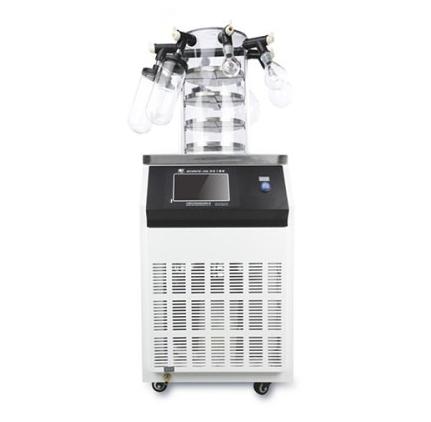
Benefits of Lyophilizer in pharma manufacturing
There are many benefits to using lyophilization in pharma manufacturing, including:
- Precision in Action
One of the key advantages of lyophilizers is their ability to maintain precise control over temperature and pressure throughout the freeze-drying process. This level of control is crucial for ensuring the quality and efficacy of pharmaceutical products. Unlike traditional drying methods, lyophilization minimizes the risk of degradation, allowing manufacturers to preserve the integrity of sensitive drugs, including biologics and vaccines.
The precision offered by lyophilizers also facilitates the production of uniform batches, reducing variability in product characteristics. This level of consistency is not only essential for meeting regulatory requirements but also for delivering reliable and effective medications to patients.
- Speed and Efficiency
In addition to precision, lyophilizers are renowned for their efficiency in accelerating the drying process. The ability to rapidly remove moisture from pharmaceutical products not only streamlines manufacturing timelines but also enhances overall production efficiency. This is particularly valuable in an industry where time-to-market can be a critical factor.
The speed of lyophilization is attributed to the unique combination of freezing and vacuum technologies. By leveraging these capabilities, lyophilizers can significantly reduce the duration of the drying process, allowing manufacturers to scale up production without compromising on quality.
- Versatility in Pharma Manufacturing
Lyophilizers are not one-size-fits-all machines. Their versatility extends to accommodating a wide range of pharmaceutical formulations, from small-molecule drugs to complex biologics. This adaptability makes lyophilization an attractive option for pharmaceutical manufacturers with diverse product portfolios.
Moreover, lyophilization can be applied to various dosage forms, including vials, ampoules, and even bulk lyophilization for large-scale production. This flexibility positions lyophilizers as a versatile tool for meeting the diverse needs of the pharmaceutical industry.

Applications of Lyophilization in Pharma Manufacturing
Lyophilization is used to manufacture a wide variety of pharmaceutical products, including:
- Vaccines: Lyophilized vaccines are often more stable and easier to store and transport than liquid vaccines.
- Enzymes: Lyophilized enzymes are often more stable and have a longer shelf life than liquid enzymes.
- Antibodies: Lyophilized antibodies are often more stable and have a longer shelf life than liquid antibodies.
The Future of Lyophilization
Lyophilization is a versatile and valuable technology that is used to manufacture a wide variety of pharmaceutical products. As the demand for new and innovative drugs continues to grow, lyophilization is likely to play an increasingly important role in pharma manufacturing.
In addition to the traditional applications of lyophilization, there are a number of emerging applications for this technology, such as:
- The development of new drug delivery systems: Lyophilization can be used to create new drug delivery systems, such as inhalable powders and implantable devices.
- The preservation of biological tissues: Lyophilization can be used to preserve biological tissues, such as organs and cells, for transplantation.
- The production of food and nutraceuticals: Lyophilization can be used to produce high-quality food and nutraceutical products that are stable and have a long shelf life.
As the demand for innovative and effective pharmaceuticals continues to grow, the role of lyophilization in pharma manufacturing is becoming increasingly important. Lyophilizer manufacturers are constantly developing new technologies and advancements to enhance the efficiency, reliability, and cost-effectiveness of the lyophilization process.

